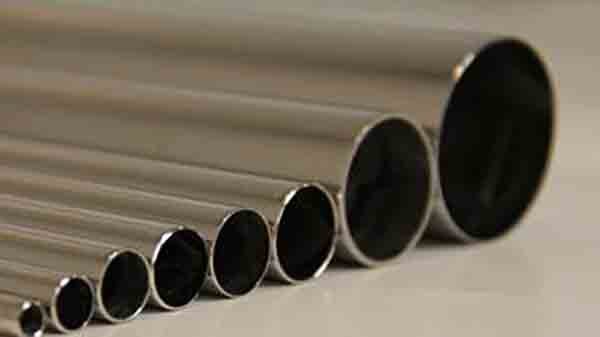Stainless steel precision tubes are essential components in various industries due to their exceptional properties. They are known for their durability, corrosion resistance, and high precision, making them suitable for a wide range of applications. This article delves into the specifics of stainless steel precision tubes, their manufacturing process, applications, advantages, challenges, and future trends.
What are Stainless Steel Precision Tubes?
Definition and Characteristics
Stainless steel precision tubes are high-quality tubes made from stainless steel, designed to meet strict tolerances and specifications. They are characterized by their precise dimensions, smooth surfaces, and excellent mechanical properties. These tubes are often used in applications where accuracy and reliability are paramount.
Types of Stainless Steel Precision Tubes
There are two main types of stainless steel precision tubes: seamless and welded. Seamless tubes are made from a solid billet, ensuring uniformity and strength, while welded tubes are made by welding a strip of stainless steel into a tube shape, offering flexibility in size and length.
Manufacturing Process
Raw Materials
The primary material for manufacturing stainless steel precision tubes is stainless steel, which is an alloy of iron, chromium, nickel, and other elements. The choice of raw materials affects the properties and quality of the final product.
Production Techniques
Seamless Tubes
Seamless tubes are produced by extruding a solid billet through a die, creating a hollow tube without any weld seams. This process ensures uniformity and strength, making seamless tubes ideal for high-pressure applications.
Welded Tubes
Welded tubes are made by welding a strip of stainless steel into a tubular shape. This process allows for greater flexibility in terms of size and length, but the weld seam may be a point of weakness compared to seamless tubes.
Quality Control
Quality control is crucial in the production of stainless steel precision tubes. Various tests, such as dimensional checks, surface inspections, and mechanical property tests, are conducted to ensure the tubes meet the required standards and specifications.
Applications of Stainless Steel Precision Tubes
Medical Industry
In the medical industry, stainless steel precision tubes are used in the production of surgical instruments, medical devices, and implants. Their biocompatibility, corrosion resistance, and high precision make them ideal for these applications.
Automotive Industry
The automotive industry utilizes stainless steel precision tubes in various components, such as fuel injection systems, exhaust systems, and hydraulic lines. Their strength, durability, and resistance to high temperatures make them suitable for these demanding applications.
Aerospace Industry
In the aerospace industry, stainless steel precision tubes are used in aircraft hydraulic systems, fuel systems, and structural components. Their high strength-to-weight ratio, corrosion resistance, and precision are critical in ensuring the safety and performance of aircraft.
Industrial Applications
Stainless steel precision tubes are widely used in industrial applications, including chemical processing, oil and gas production, and power generation. Their ability to withstand harsh environments and corrosive substances makes them indispensable in these industries.
Advantages of Using Stainless Steel Precision Tubes
Durability and Strength
Stainless steel precision tubes are known for their exceptional durability and strength. They can withstand high pressures, temperatures, and mechanical stresses, making them suitable for demanding applications.
Corrosion Resistance
One of the key advantages of stainless steel precision tubes is their corrosion resistance. Stainless steel contains chromium, which forms a protective oxide layer on the surface, preventing corrosion and rust.
Precision and Accuracy
Stainless steel precision tubes are manufactured to meet strict tolerances and specifications, ensuring high precision and accuracy. This makes them ideal for applications where precise measurements and reliability are crucial.
Challenges in the Production of Stainless Steel Precision Tubes
Material Costs
The production of stainless steel precision tubes involves high material costs, as stainless steel is more expensive than other materials. This can be a significant challenge for manufacturers, especially in competitive markets.
Technical Difficulties
The manufacturing process of stainless steel precision tubes is complex and requires advanced technology and skilled labor. Technical difficulties, such as maintaining dimensional accuracy and surface quality, can pose challenges in production.
Market Competition
The market for stainless steel precision tubes is highly competitive, with numerous manufacturers vying for market share. This competition can drive down prices and impact profit margins, making it challenging for companies to sustain their operations.
Future Trends in Stainless Steel Precision Tubes
Technological Innovations
Technological advancements are expected to drive the future of stainless steel precision tubes. Innovations in manufacturing techniques, such as additive manufacturing and automation, can improve efficiency, reduce costs, and enhance product quality.
Sustainability and Environmental Impact
Sustainability is becoming increasingly important in the production of stainless steel precision tubes. Manufacturers are focusing on reducing their environmental impact by adopting eco-friendly practices, such as recycling and minimizing waste.
Stainless steel precision tubes are essential components in various industries due to their exceptional properties and versatility. Despite the challenges in production, their advantages and wide range of applications make them indispensable. As technological innovations and sustainability efforts continue to shape the industry, the future of stainless steel precision tubes looks promising.


